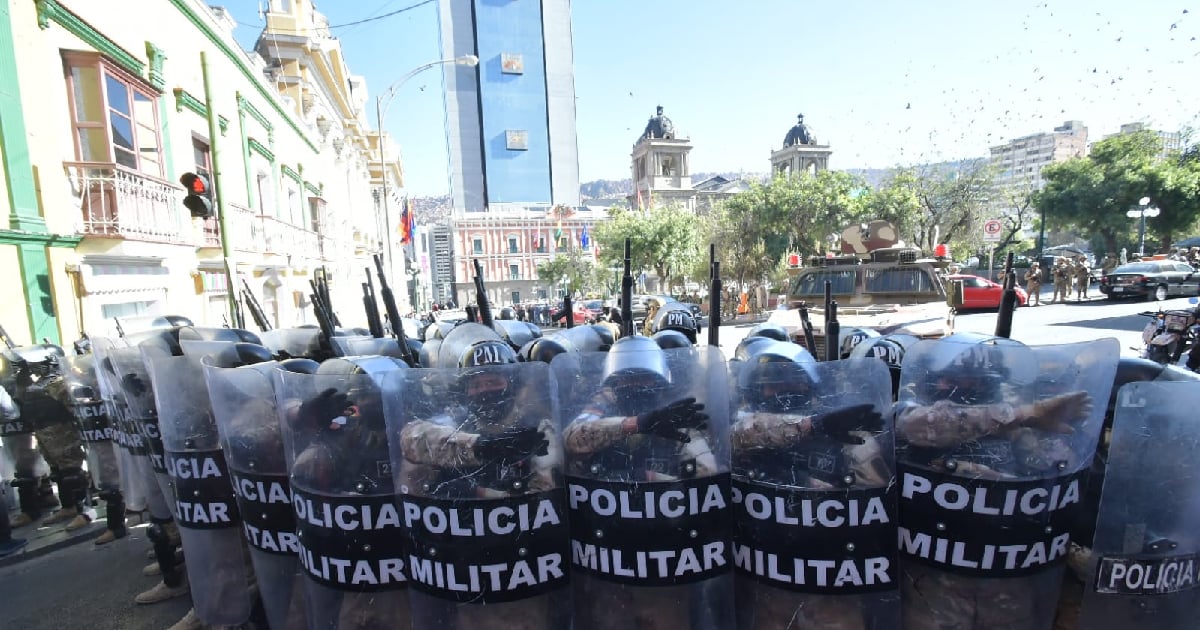The Cuban government expressed disapproval on Monday regarding Argentina's actions following the coup attempt in Bolivia, condemning what it described as Argentina's "provocative position that meddles in the internal affairs of other states."
In a statement issued by the Ministry of Foreign Affairs (MINREX), the Cuban regime criticized "the declaration from the Office of the President of Argentina, which tries to manipulate the events that occurred on June 26 in Bolivia."
On its social media account on X, MINREX added, "once again, the Argentine government resorts to slanderous rhetoric aimed at diverting attention from the serious issues caused by its policies for its people and its relations with other states."
Bolivia's Response to Argentine Declarations
Bolivia's Minister of the Presidency, María Nela Prada, acting as interim foreign minister, announced that they had summoned the Argentine ambassador in La Paz, Marcelo Adrián Massoni, to express their "strong rejection" of the statements issued by the office of President Javier Milei.
According to Bolivian news outlet El Deber, Bolivia also called its ambassador to Argentina, Ramiro Tapia, back for consultations to the government headquarters in Bolivia.
The situation escalated after a June 30 statement from President Milei's office, which declared, "we repudiate the false coup allegation made by the Bolivian government on Wednesday, June 26, and confirmed as fraudulent today." Furthermore, the statement claimed that "the narrative circulated was hardly credible and the arguments did not align with the sociopolitical context" of the area.
However, just hours ago, Argentine presidential spokesperson Manuel Adorni asserted that the statement was "simply a description of the events," according to the cited media outlet.
"We are extremely cautious; we do not believe the statement will cause any conflict because it is merely a description of the facts from various pieces of information we are gathering, some already known to you and others coming through usual government channels," Adorni stated during a press conference.
On Wednesday, military forces entered the Bolivian government palace in La Paz, an incident the administration of President Luis Arce labeled an "attempted coup."
Led by General Juan José Zúñiga, who had been relieved of his duties as Commander General of the Army a day earlier, insubordinate soldiers took over Plaza Murillo, the seat of the Bolivian government. Though the situation was eventually brought under control, dozens were detained, and many remain under investigation. The nation remains tense, with citizens anxiously awaiting further developments.
Key Questions on Argentina and Bolivia's Diplomatic Tensions
In light of recent diplomatic clashes between Argentina and Bolivia, here are some crucial questions and answers that provide further insight into the situation.
Why did Cuba criticize Argentina's stance on the Bolivian coup attempt?
Cuba condemned Argentina's actions as provocative and meddlesome in Bolivia's internal affairs, accusing Argentina of manipulating events and diverting attention from its own domestic issues.
What was Bolivia's reaction to Argentina's statement?
Bolivia strongly rejected Argentina's statements, summoning the Argentine ambassador in La Paz and calling back its ambassador to Argentina for consultations.
Who led the military forces during the attempted coup in Bolivia?
The military forces were led by General Juan José Zúñiga, who had been relieved of his duties as Commander General of the Army a day before the incident.
